
A low-energy total diet replacement program before colorectal cancer surgery helped patients lose weight safely, improved certain symptoms, and showed cost-effectiveness.

A low-energy total diet replacement program before colorectal cancer surgery helped patients lose weight safely, improved certain symptoms, and showed cost-effectiveness.

Financial and social barriers hinder access to specialized care and impact treatment outcomes for adolescents and young adults with leukemia.

Innovative smart pill bottles significantly enhance adherence to oral adjuvant endocrine therapy in early-stage breast cancer, noted Steven Manobianco, MD.

New findings from 2 abstracts presented at SABCS reveal T-DXd regimens enhance outcomes and tolerability for patients with high-risk HER2-positive early breast cancer.

Both health care plans brought forward by Republican and Democratic senators, respectively, did not garner enough support from across the aisle.

More than one-quarter of US adults have a risk factor for severe RSV infection, but their eligibility for the RSV vaccine depends on their age.

Early fertility counseling is necessary for young patients before treatment limits options, said Yara Abdou, MD, of the University of North Carolina at Chapel Hill.
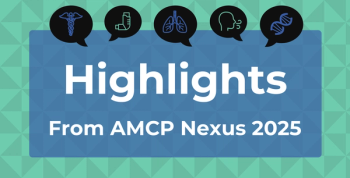
AMCP Nexus 2025 explored innovative health care policies, oncology advancements, and the impact of new regulations on patient access and treatment outcomes.
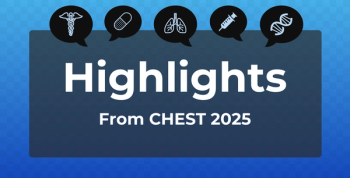
Top content from this year's CHEST meeting in Chicago focused on bronchiectasis treatment, particularly the newly FDA-approved brensocatib (Brinspuri; Insmed).

Psychotherapy is key in reducing risk of depression relapse when tapering antidepressant medication.

Treatment-induced menopause can occur with severe symptoms, making personalized management and careful therapy selection essential.

Cervical cancer screening adherence drops below 10%, highlighting confusion over evolving guidelines and significant disparities in HPV awareness.

Research highlights the complex cognitive difficulties faced by breast cancer survivors, emphasizing the need for multifaceted treatment approaches, says Xiaotong Li, PhD, MS.
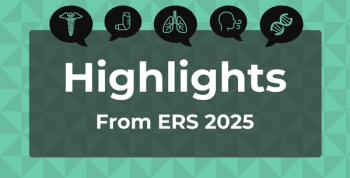
Discover key insights from the ERS Congress 2025, highlighting advancements in pulmonary fibrosis treatment and the promising role of nerandomilast.

The incidence of age-related macular degeneration could be linked to handgrip strength according to an analysis of the UK Biobank.

Recent studies highlight ustekinumab's effectiveness and safety in treating Crohn disease, especially for patients unresponsive to prior therapies.

Experts at SABCS 2025 said alcohol consumption raises breast cancer risk, emphasizing the need for public education and clinical intervention.
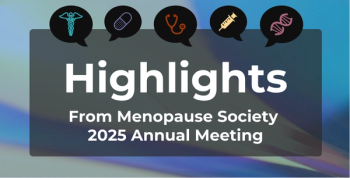
In case you missed it: the top 5 highlights from the Menopause Society's 2025 Annual Meeting.

If validated prospectively, the classifier could provide oncologists with clearer prognostic insight, enabling more personalized chemotherapy decisions, earlier intervention for high-risk patients, and potential adaptation across STS and other cancer types.
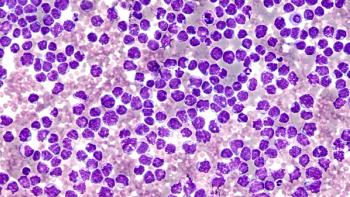
A chemotherapy-free, MRD-guided regimen achieved deep, durable remissions in untreated MCL with manageable toxicity and the potential for time-limited therapy.

A small set of pre-apheresis biological factors can reliably predict whether patients with DLBCL will achieve the T cell collection efficiency needed for successful CAR T manufacturing

A review of 560 FDA-approved drugs found the FDAAA did not change overall time to first postmarket safety action, but some actions occurred earlier.

Common and rare genetic variants linked to idiopathic pulmonary fibrosis (IPF) and reveals substantial genetic overlap with severe COVID-19, highlighting shared biological pathways and potential therapeutic targets.

At SABCS 2025, Amrita Basu, PhD, underscores that effective AI use for breast cancer care depends on human oversight.

Research at the San Antonio Breast Cancer Conference highlights T-DXd's superior efficacy and safety in HER2+ metastatic breast cancer, especially among diverse populations.

Discover more about seasonal affective disorder in this interview with Craig Sawchuk, PhD, LP, clinical psychologist at Mayo Clinic.

Innovative deep proteomic profiling reveals promising results from a blood-based test for early breast cancer, showcasing high sensitivity and specificity, explains Justin Drake, PhD.

As value-based care mandates expand, a new survey highlights documentation burdens and burnout risks.
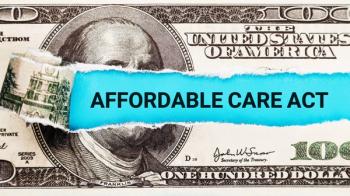
Democrats move to extend ACA subsidies as enrollment closes, leaving consumers uncertain about premiums, coverage, and alternative health options.

Photopsia associated with camizestrant was mostly mild, nondisabling, and reversible, according to Adam Brufsky, MD, PhD, at SABCS 2025.

259 Prospect Plains Rd, Bldg H
Cranbury, NJ 08512
© 2025 MJH Life Sciences®
All rights reserved.
